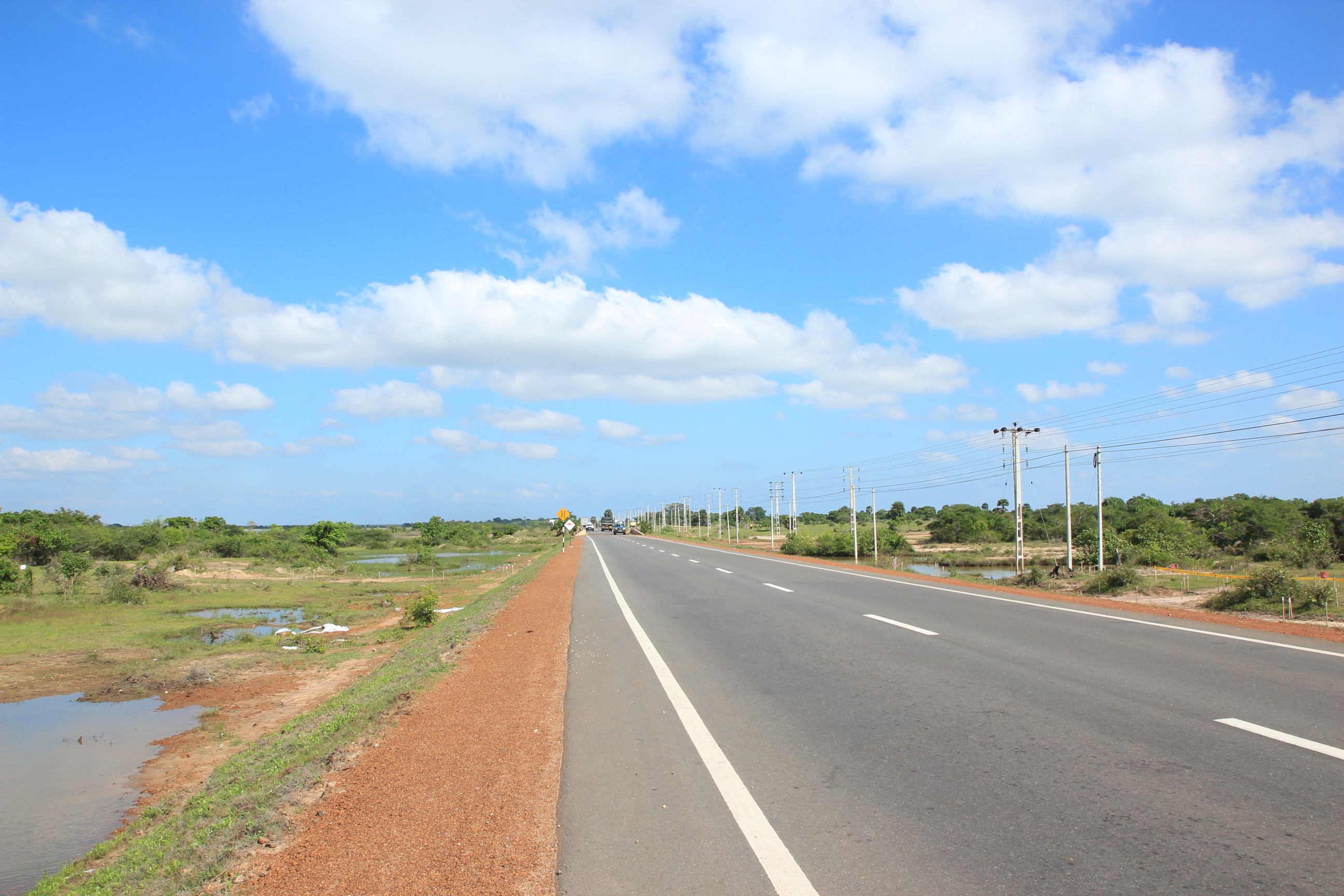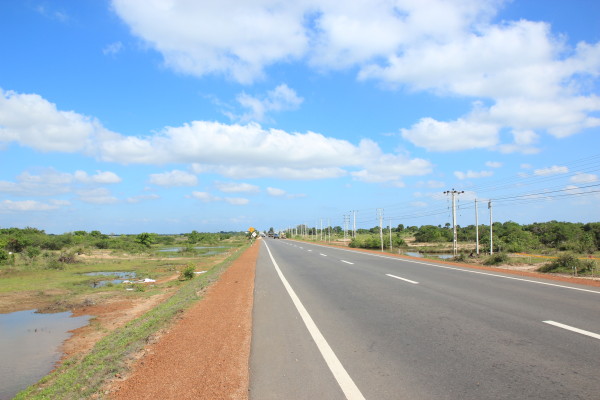[In 2009, the decades-long civil war in Sri Lanka between the terrorist LTTE or Tamil Tigers and Sri Lankan Government finally ended, but left behind a legacy of war that endures, further complicated by global climate change. In 2012, Johnny C traveled there to cover the forces of war, globalization, and climate change. Some names and organizations have been changed to protect the identities of those who participated in the events of this series.]
In the brightest, bluest skies I had ever seen, the most beautiful sight that day was the front seat of the air conditioned car to shelter us from the blazing heat of the sun. As I drove north on the only road from Colombo to Kilinochchi, the wide, empty space was occasionally interrupted by many barefoot girls who marched miles on end for clean drinking water and mothers with their children who bathed in water where sewage drained into.
“It’s been getting hotter over the past ten years, you know” said Sam, my guide and translator. “The country has two typhoon seasons and two dry seasons, but it all depends on which part of the island you live in, so it’s wet in one part whenever it’s dry in the other”, he continued. A land of contrast and duality, even without the war.
The quick pace of the ride was interrupted only by the frequent flag-downs by the military wanting to see my passport and snap some pictures of the very first Southeast Asian face they had ever seen. The assumption upon seeing my youthful face was that I was some Malaysian oil tyrant’s son, but my press credential, passport with my actual birth date, and the logo of the Big Blue Organization with offices in Geneva and New York quickly detailed who I really was and what we were doing there.
What we explained to them was that we were there to do some evaluation of some projects with the other NGOs (non-government organizations) involved up there, because everyone is working together to collaborate and rebuild what the government alone can’t due to how much was spent winning the war. The most expensive part of war isn’t the fight, but the reconstruction, and while NGOs can bring in a lot of experts, volunteers, help create jobs and education opportunities, and offer shelter and medical care to refugees, they usually don’t carry guns to fight and defend themselves, which is what the Government (and oftentimes mercenaries) do instead.
What we actually did was try to survive because the state of development doesn’t end during war and conflict, and reconstruction usually isn’t streamlined or orderly. This was reinforced when after my fourth hour driving to Jaffna and Kilinochchi, we stopped to mark our territory and I wandered a bit further away from the car to let go of all that bottled water and ginger beer over some bushes, only for someone in what appeared to be some spacesuit came at me yelling and screaming. Knowing neither Sinhalese nor Tamil, I smiled and waved, hoping that my friendliness would distract him from looking at the yellow waterfall I was standing at the top of.
Sam came to me upon hearing the man’s screaming, and told me I had been pissing near a mine field. The signs were on the other side, the blast radius was larger than what they were walling people off from entering. No civilian, especially an expat, was expected to be anywhere here. After a quick conversation to make peace, Sam told me back in the car the real sad story there wasn’t that the world would have been deprived of my scepter of domination had I died there, but that the boys like the one who came at me were the same former soldiers who had laid those landmines there before during the war. Along with the stigma of being with the terrorists, there were not many job opportunities, and much what little was available didn’t earn enough, so they resorted to mine sweeping even if they knew they would be out of work within a few years and still have no real skills to bring to the regular workforce.
“People have options, though: prostitution, drugs, hiding in a boat and going to Australia–nobody is ever stuck doing one thing” the driver chimed in sardonically. As the weather shifted from scorching sun to heavy rain, I adjusted my seat and lay back, trying to get comfortable as the roads became dirt paths jumbled with rocks and narrowed into spaces that allowed only a single vehicle on it for both directions. I hit shuffle on my iPod and Canned Heat’s “On The Road Again” came on. By the time I realized it was on repeat, I had already found myself going further into sleep and woke up in front of the hotel, where I threw my luggage and camera onto the floor, turned on the air conditioner full blast, and went back to sleep because I knew the next few days wouldn’t allow for much of that.
The plans for some extra sleep fell through when I was awakened in the morning by curious hotel staff who “accidentally” kept mistaking my room for someone else’s to deliver morning tea to at 0600 in the morning so that they could see this “Malaysian” for the first time. I had suddenly transformed into a Malaysian because they couldn’t fathom how I was Chinese-Filipino, born in the U.S., who was living in Thailand and working in Sri Lanka on assignment. As cranky as Malaysians can be at 0600 in the morning with traveler’s diarrhea and not enough rest, I restrained myself from launching vicious complaints, because chances are, these curious (tempted to say rude) people very likely were also affected by the war, if the telltale bullet holes in the surrounding buildings and the dirt path where a road should have been were any indicators. So I bit my Malaysian tongue and slammed the door shut for the third time that morning, before the Tamil music on the radio started playing full blast across the street at the breakfast cafe.
“This is going to be a long assignment,” I thought, “as usual.”
End of Part 1









